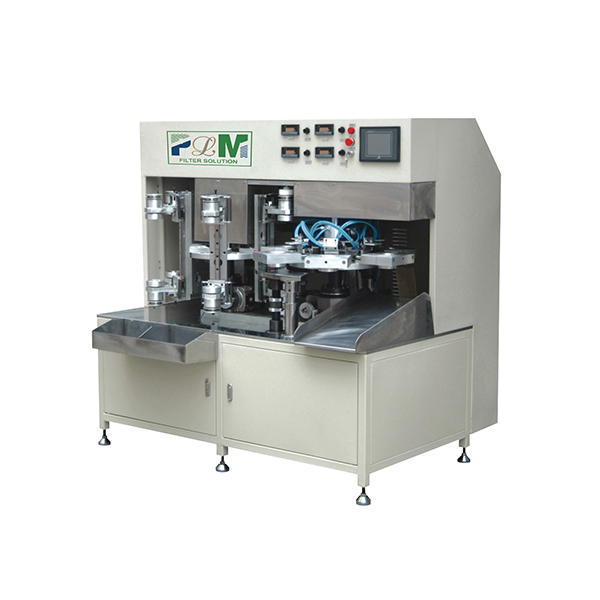נוב . 28, 2024 07:53 Back to list
Manufacturing Processes for OEM Car Air Filters and Related Components
The Importance of OEM Car Air Filters An Insight into Manufacturing
In the automotive industry, the importance of high-quality parts cannot be overstated, particularly when it comes to essential components like air filters. OEM (Original Equipment Manufacturer) car air filters play a crucial role in ensuring the longevity, performance, and efficiency of vehicles. This article delves into the intricacies of OEM car air filter manufacturing, emphasizing why these filters are indispensable for vehicle maintenance and performance.
Understanding OEM Air Filters
OEM air filters are specifically designed and manufactured by a company's established specifications, ensuring that they fit perfectly into a given vehicle model. Unlike aftermarket filters, which may vary in quality and specifications, OEM filters guarantee adherence to predefined standards. This uniformity is vital for maintaining engine performance and protecting it from harmful contaminants.
The primary function of car air filters is to prevent dirt, debris, and other particles from entering the engine. A clean air filter allows for optimal airflow, which is essential for efficient combustion. When air filters become dirty or clogged, they restrict airflow, resulting in decreased engine performance, lower fuel efficiency, and potential engine damage. Therefore, using a high-quality OEM air filter can significantly impact a vehicle's overall health.
The Manufacturing Process
The manufacturing of OEM car air filters involves a sequence of meticulously planned steps to ensure quality and efficacy. The process begins with the selection of materials. Most OEM air filters are made from a combination of high-quality paper, foam, or synthetic fibers. These materials are chosen for their ability to trap particles while allowing sufficient air flow.
1. Material Preparation The raw materials are first prepared through cutting and shaping procedures. The goal is to create filter media that can effectively capture contaminants while allowing the needed airflow. 2. Forming and Assembly After preparing the materials, the next step involves forming the filter into its intended shape. This often involves pleating the filter media to increase the surface area, enhancing its capacity to trap dirt and debris. The pleated media is then secured in a frame, typically made of sturdy plastic or metal.
3. Quality Testing Before an OEM air filter reaches the market, it undergoes rigorous testing. Various tests assess the filter’s efficiency in capturing particles of different sizes and its durability under varying conditions. Ensuring that filters meet or exceed industry standards is critical for maintaining the manufacturer's reputation and the vehicle's performance.
oem car air filter making

4. Packaging and Distribution Once the filters pass the quality inspections, they are packaged carefully to prevent damage during transport and storage. The distribution phase ensures that these filters are readily available to dealers and manufacturers worldwide, allowing them to maintain an efficient supply chain.
The Benefits of Using OEM Air Filters
1. Compatibility OEM air filters are designed to fit seamlessly into specific vehicles, which eliminates the risk of improper installation or compatibility issues that can arise with aftermarket options.
2. Performance Assurance Since OEM filters are created to meet the exact specifications of the manufacturer, they ensure optimal performance. This can lead to improved fuel efficiency and better overall engine performance.
3. Warranty Protection Using OEM parts, including air filters, can help preserve the warranty of a vehicle. Many manufacturers require that OEM or equivalent parts be used to maintain warranty coverage, protecting the owner’s investment.
4. Longevity High-quality OEM air filters tend to last longer than cheaper alternatives, as they are designed to withstand the specific conditions of the vehicle and the environment it operates in.
Conclusion
In summary, OEM car air filters are vital to maintaining the performance and longevity of vehicles. The precision manufacturing process, commitment to quality, and the benefits associated with their use highlight the significance of investing in OEM parts. Vehicle owners who prioritize maintenance should recognize the value of using OEM air filters to keep their cars running efficiently and reliably. By choosing OEM, they are not just purchasing a product; they are ensuring the health of their vehicle for years to come.
-
Premium Engine Oil Filter Supplier & Exporter Reliable Engine Oil Filter Service
NewsJul.04,2025
-
Wholesale PLRZ-1000N Full-Auto Hot Melt Filter Paper Bonding Machine - High Efficiency & Precision
NewsJul.04,2025
-
OEM PLXB-1 PU Pack Trimming Machine - High Precision, Durable, Cost-Effective Solutions
NewsJun.10,2025
-
High-Performance In Line Fan Filter Trusted In Line Fan Filter Company & Products
NewsJun.10,2025
-
High-Efficiency Water Filter Making Machine Reliable Companies & Products
NewsJun.10,2025
-
Premium Metal Fuel Filter Durable & Efficient for Engine Protection
NewsJun.10,2025
